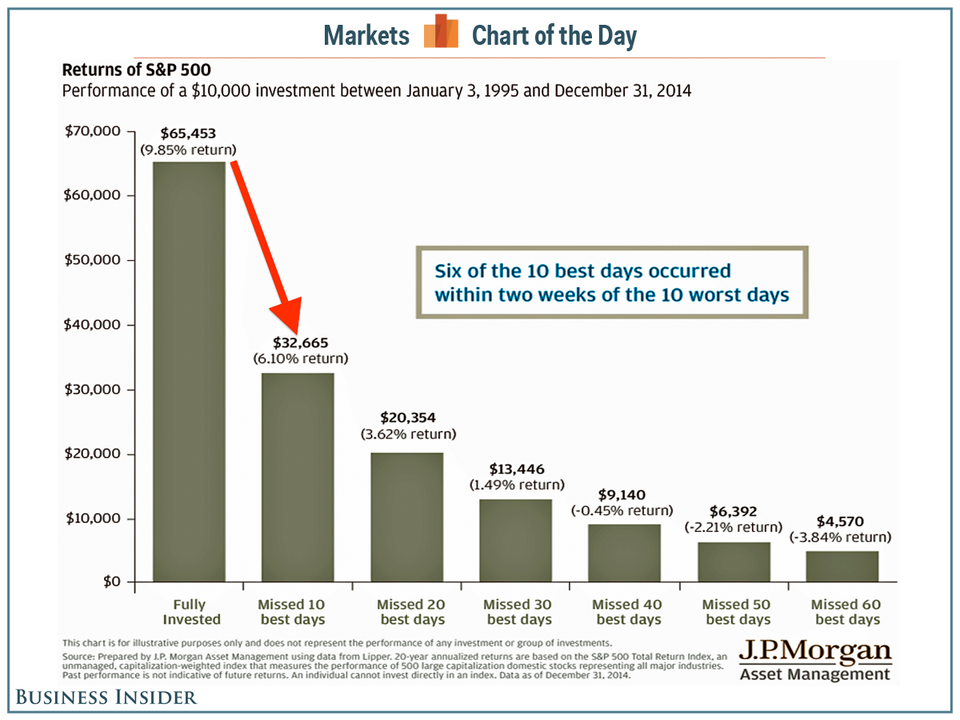Some statistics to support the gut feeling...
Using Shiller's data to graph the long term line, through the peaks and troughs of the market, while calculating out inflation... you end up with a linear 7.1% growth for stocks (S&P). This line can be positioned so that the market sits half above and half below that line, and the market positions on top of it over the long haul. So if the history of this dataset is any indication of the next few decades... you can assume (for what assumptions are worth) that half of the next 30 years we'll sit above this line and half of it we'll sit below.
That line, right now... isn't really all that useful day by day, month by month, or even year by year... however regression to the mean suggests that gravity will pull us down or up depending on where we sit compared to this line.
The line... as of October 2017 (last time I computed it) had us at 18,700 for the DOW (that is assuming the DOW is correlated over the long haul to the S&P historical return).
So I don't know how we'll get back to the line... maybe it'll just be 3.5 flat years... maybe it'll be another 25% rise and a sharp correction. I can say, half of the next 20 years are likely to sit below it, and half above it. On average. I do know that, history tends to suggest that at each high, people come up with all kinds of justifications for why we belong there (indicators...economy... "it's different this time"... it always is different this time, ironically... etc...) but we somehow always manage to keep straddling this long term 7.1% (after inflation).
I assume we will continue to do so for the long haul... and on that note, I assume the market is about 33% ahead of itself right now - but that's normal, sometimes it's 33% behind itself (that would be a huge sell off from right now). I guess this is market timing... but it's unemotional analysis as well, so long as the future conspires to mimic the past...
I was 100% stocks until December... I moved to 23% bonds when it passed 24,400, and earlier this month, when the market hit 26,200 I moved another 20% to cash. I am secretly cheering that one on because it came a day or two before the 1000 point drop (it was luck, but I'd like to think my intelligence had something to do with the choice... nah). I'm now sitting with almost 40% of my 401k out of stocks for the first time ever, wondering if I'm stupid as well... I never liked to market time, myself.
It just feels like the right thing to do, right now. meh...



 ( Returns on bonds .... not so much
( Returns on bonds .... not so much